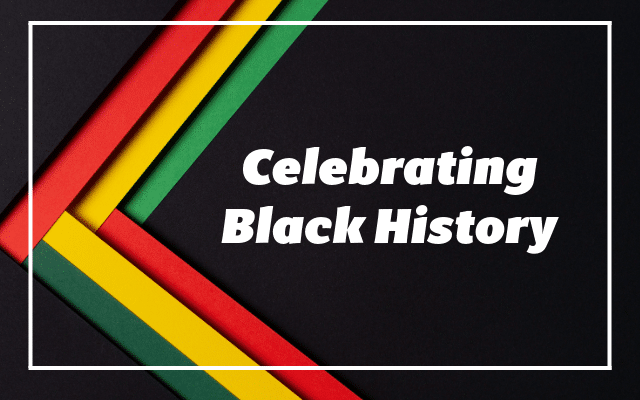News and Events
At HeartShare, we believe in keeping you aware of news and events throughout the agency. Be sure to visit our Events Calendar for important upcoming dates that may be of interest to you.
Celebrating Black History Month at HeartShare
February 27, 2024
Celebrations, Community, Disability Rights, Thought Leadership
Celebrating Black History Month at HeartShare
By Lily Robinson –
Understanding our past is essential to our work today and where we hope it brings us. A considerable part of that past is the people who lived it and built the foundations on which we stand now.
In February, we celebrate Black History Month. We honor and acknowledge those who came before, broke barriers, and inspired generations to follow.
The intellectually and developmentally disabled community and the black community are both marginalized groups struggling to have a voice. And then there is a third group comprised by those who stand in the intersection of the previous two: Black people who live with a disability.
Here, we honor just a few of the very long list of Black Disability Advocates who challenged the barriers society placed on them to make space for the entire disabled community.
Advocates Who’ve Paved The Way
Donald Galloway
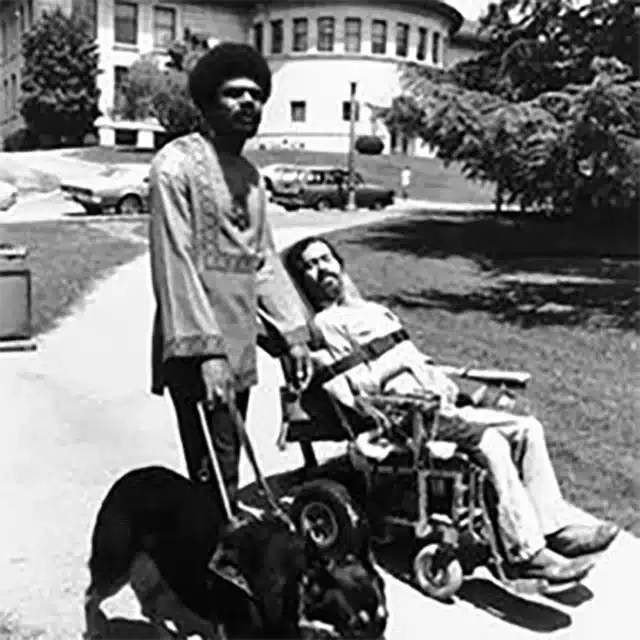
Donald Galloway and Ed Roberts in 1974
Despite being blinded in an accident as a teenager, Donald Galloway remained determined to live a whole and prosperous life, including one that advocated for others. Even from an early age, Donald devoted his time and voice to various advancement organizations, including The National Federation for The Blind and the NAACP. After receiving a master’s degree in social work, he served in prominent roles at Berkeley’s Center for Independent Living, a hub of the disability rights movement in the 1970s, the Colorado Governor’s Council on Disability in Denver, the Peace Corps, and within multiple disability affairs branches of the D.C. government.
One of Galloway’s most significant advocacy moments came from the personal experience of being dismissed from serving jury duty due to his inability to see. Galloway sued the D.C. district court, and the judge later ruled that disqualifying an individual from jury service based on their being blind was unconstitutional.
Galloway knew that disabled voices were missing from many conversations, and within those, Black voices were missing from discussions on disability. Galloway spent his life advocating for better representation for these marginalized groups to succeed beyond their predetermined designated spaces and universally within all spaces.
“My belief system is a person with a disability shouldn’t be hired to just work with disabled organizations and on disabled issues. That may be the first step, but we should branch out…And that’s the key of success to me – is to see how we bring in other brothers and sisters to work in all capacities.”
Harriet Tubman
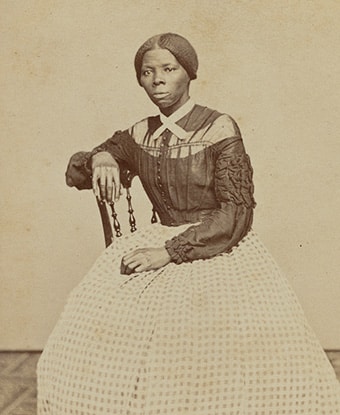
Harriet Tubman in 1868 or 1869
Library of Congress
Many know Harriet Tubman’s legacy as having been a crucial part of the Underground Railroad that led enslaved people to freedom, but not many know Harriet was disabled.
Although there are various accounts as to how Harriet Formey, known as Minty in her early age, became disabled, a historian at the Harriet Tubman Underground Railroad State Park Visitor Center cites that on her way to the market as a teenager, Harriet was asked to intervene between a white slaveowner and his fugitive. She refused to get involved, the angry slaveowner threw a blunt object intended for the fugitive but struck Harriet instead. The blow left Harriet clinging to life. She eventually recovered but dealt with debilitating pain, intense seizures, and bouts of narcolepsy for the rest of her life.
Tubman escaped slavery in her 20s and shepherded over 70 enslaved individuals to safety. Union forces were so impressed with her skills that they would later hire her to work as a spy throughout the Civil War. She continuously demanded respect not only for herself but for all, while simultaneously struggling silently with the symptoms of her brain injury.
When discussing Tubman’s legacy, it’s essential to include every layer of her identity, especially her disability. Not shying away from that factor helps others in the disabled community feel seen, as well as enlightens those in the non-disabled community that a disability does not define who you are and the impact you can make.
Continuing Advocacy Today
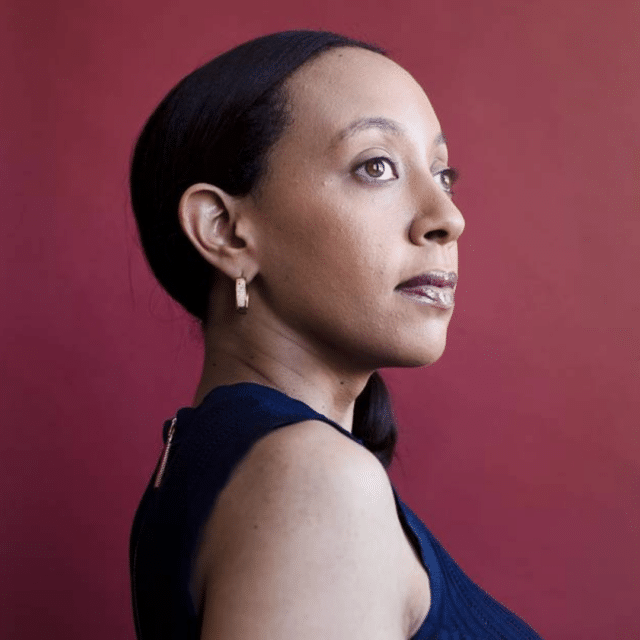
Disability rights advocate Haben Girma, WSJ
Heritage awareness and education should continually expand beyond just one month. Here are a few resources to continue your learning featuring some of today’s Black disability advocates.
Haben Girma
Haben Girma is an American disability rights lawyer and the first deafblind graduate of Harvard Law School. She describes her journey from childhood through Harvard in her book Haben: The Deafblind Woman Who Conquered Harvard Law.
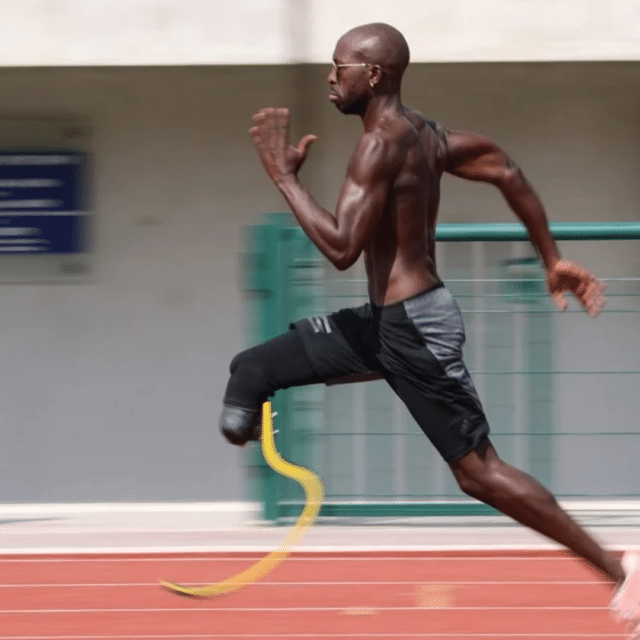
Jean-Baptise Alaize : AFP
Jean-Baptise Alaize
Jean-Baptiste Alaize is an award-winning French paralympic athlete. Despite having a partial leg amputation when he was just three years old, Jean-Baptiste continued to break records as a sprint and long jump competitor. You can watch his journey as part of the Paralympic documentary Rising Phoenix.
Sources
Share
Website Footer
 Donate
Donate
Sign up for our newsletter

Click this logo to support HeartShare every time you shop at Amazon. For all eligible purchases, the AmazonSmile program donates 0.5 percent of the price to HeartShare.
Website by Manoverboard Inc.
